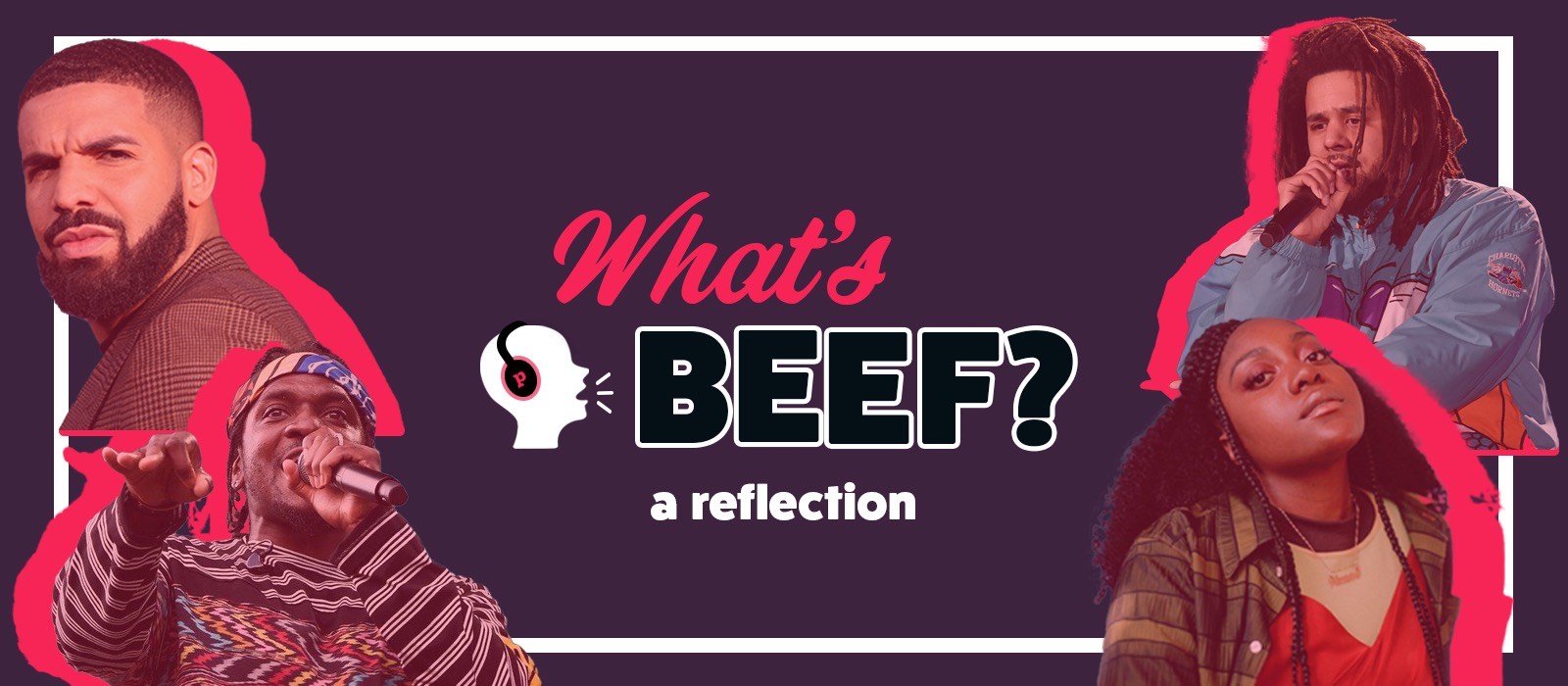
Prompt Images
“What’s beef? Beef is when I murk you on the spot
Labels signing anything, still searching for their Pac”
— The Game, 300 Bars & Runnin’
Listen along to The Prompt’s Hip-Hop Beef Playlist
Fourteen minutes and 42 seconds. That’s how long my introduction to hip-hop beef was: the length of Game’s marathon diss track “300 Bars & Runnin’” aimed at 50 Cent.
Back in 2005, 50 Cent was arguably rap’s biggest name, still riding a heater since Get Rich or Die Tryin’ in ‘03, which set the stage for his highly-anticipated second studio album. He was on top of the music world.
Then, Game sent Fiddy into oblivion.
I’m serious. It was visceral and thorough. At one point, Game even concedes: “On my album, Fifty helped me just a lil’ bit/Only on two songs, now back to some killer shit.”
“Killer shit” is the operative term here, as emcees were pretty much always going for the throat. For a long time, violence seemed like the unnecessary collateral damage of beef, right? The ‘90s beef between 2Pac and the Notorious B.I.G. escalated beyond just East Coast / West Coast lyrical dominance. In the fallout, we lost two of the game’s greatest of all-time to senseless violence. Luckily, that bloody level of feuding hasn’t been seen since.
Still, ripping the heart out of your opponent in a gladiatorial, lyrical display has seemingly always been the standard in hip-hop beefs.
Before Biggie and Tupac, Ice Cube went at NWA sans vaseline. Who could forget when Nas eviscerated Jay-Z, on “Ether,” adding a new verb into the hip-hop lexicon based solely on how badly he eviscerated Hov.
“Shortly after Nas released the song, the word “ether” entered the hip hop lexicon as a slang expression synonymous with ruthlessness – meaning to harshly humiliate an opponent.” — Ether (song) – Wikipedia entry
In more recent years, we’ve seen a few small-time beefs—like Drake verbally sparring with Meek Mill and Pusha T—but I’d rather set aside the all-time pettiness and focus my attention on a squabble that channeled the true essence of hip-hop beef: holding each other accountable.
Accountability is a common thread and the basis of the beef.
In “No Vaseline,” Ice Cube wanted NWA, namely Eazy E and manager Jerry Heller, to address the lack of commensurate compensation for his contributions to the group.
And Jay-Z’s “The Takeover,” the diss track that started the beef and preceded Nas’s “Ether” response, was about accountability too. Jay-Z didn’t take kindly to Nas snubbing a scheduled studio session while recording Reasonable Doubt, and Nas watched his sampled vocals become the chorus for one of Jay’s most famous songs. Awkward.
Meek and Pusha both felt it necessary to call out Drake’s alleged use of ghostwriters, a perceived affront to the authenticity hip-hop heads crave from artists.
In calling out the offending party, the initiators want the other to say, “my bad, you right.”
A desire for accountability is how hip-hop beefs started in the first place.
In 1984, the 14 year-old Roxanne Shanté started the first hip-hop beef when she called out rap group U.T.F.O on “Roxanne’s Revenge” for their off-putting song about a girl who ignored their repeated, unwelcome advances.
Today, the beef between Noname and J. Cole strikes a similar tone and pro-woman message to Roxanne’s diss track, which started it all. Last month, J. Cole dropped “Snow on the Bluff” and called out Noname—ironically without ever mentioning her by name—for her Twitter post calling out top-selling rappers for their silence after the deaths of George Floyd and Breonna Taylor.
But one line in “Snow on the Bluff” made the record skip:
“But shit, it’s something about the queen tone that’s botherin’ me”
Pride is a helluva drug, and Noname wasn’t about to let Cole get the best of her.
In just 70 seconds—less time than it takes to brush your teeth—Noname matter-of-factly dismantles patriarchal bullshit from a misguided J.Cole in the process of guiding the listener to what really needs attention. “Song 33” is so tight and so compelling, that Noname doesn’t need my help summarizing. You should just take the minute and listen for yourself.
What stands out about Noname is how calm she sounds on “Song 33,” especially when juxtaposed with J. Cole’s desperate, frantic pleas in “Snow on the Bluff.” It conveys a confidence, a knowing, and a moral higher ground that is hard to beat.
Alas, Noname apologized for responding to J.Cole, and I respect her for not wanting to be a distraction from the civil rights action that she wants to be the true focus of attention. At the same time, I hope we all remember this moment in hip-hop beef, when the underdog laid down a first round knockout. I, for one, am glad she left the song up.



